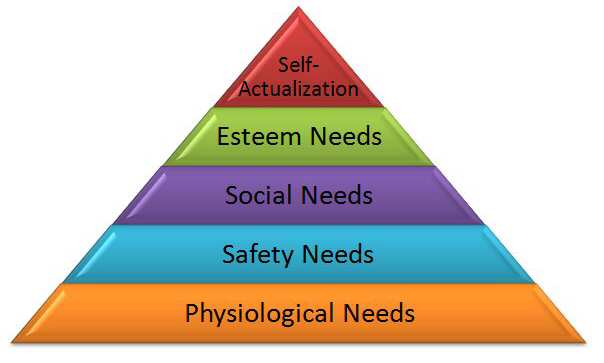In 1943, Abraham Maslow’s article, “A Theory of Human Motivation ” appeared in the Psychological Review, which were further expanded upon in his book: Toward a psychology of well being, Abraham H. Maslow attempted to formulate a needs-based framework of human motivation and based upon his clinical experiences with people, rather than as did the prior psychology theories of his day from authors such as Freud and B.F. Skinner, which were largely theoretical or based upon animal behavior. The basis of Maslow’s motivation theory is that human beings are motivated by unsatisfied needs, and that certain lower factors need to be satisfied before higher needs can be satisfied. According to Maslow, there are general types of needs (physiological, survival,Continue reading
Management Basics
Meaning and Definition of Motivation
To the behavioral scientists, the word motivation is something stemming from within a person. According to them, motivation refers to a dynamic driving force, which stems from within. It is an “inner striving condition, which activates or moves individual into action and continues him in the course of action enthusiastically”. Thus, motivation is defined as an inner state that activates, energizes or moves behavior towards goals. And, the forces inside the individual that inspire him to continue work are variously called as wishes, drives, needs etc. According to Rensis Likert motivation is the “core of management.” Motivation is an important function performed by manager for actuating the people to work for the accomplishment of organisational objectives. Issuance of well-conceived instructionsContinue reading
Formal and informal leaders
It has been observed above that a manager should also be a good leader. But in actual practice, every manager is not able to provide the kind of leadership desired by his subordinates. This gives rise to informal leaders who do not hold any managerial post in the organisation. A formal leader, on the other hand, is one who possesses organisational authority to direct and control the activities of his subordinates. He can issue orders and instructions to his subordinates by virtue of his formal authority in the organisation. An informal leader is elected by the management, as in case of a formal leader. Sometimes, informal leaders become more acceptable to the workers as compared to the formal leaders. InContinue reading
Importance of leadership
The importance of leadership in the field of management is given below: Helps in guiding and inspiring the employees: leader guides and inspires his subordinates towards higher performance and so helps in achieving the business goals. Creates confidence: leader creates confidence among the employees by understanding and handling the situations as per proper requirement. Sometimes individuals fail to recognize their qualities and capabilities than he provides psychological support to the followers by his conduct and expression. Improves productivity: the main purpose is to use the available human and non-human resources of the organisation efficiently and efficiency of performance = the product of capability and willingness. By raising willingness leader helps in improving the productivity. Improves job satisfaction: effort from monitoryContinue reading
The Meaning and Essence of Leadership
Leadership is a process of influencing the behavior of other people to work willingly towards the achievement of organisational goals. It involves existence of a leader and followers. So leadership is an exercise to influence the behavior of the followers towards attainment/achievement of specified goals. Here the person who guides or directs his followers is known as leader. Leadership is a process of influence: Leadership is a process whose important ingredient is the influence exercised by the leader on goup members. A person is said to have an influence over others when they are willing to carry out his wishes and accept his advice, guidance and direction. Successful leaders are able to influence the behavior, attitudes and beliefs of theirContinue reading
Steps in Rational Decision Making
Effective decision-making process requires a rational choice of a course of action. There is a need to define the term rational here. Rationality is the ability to follow systematically, logical, thorough approach in decision making. Thus, if a decision is taken after thorough analysis and reasoning and weighing the consequences of various alternatives, such a decision will be called an objective or rational decision. Therefore rationality is the ability to follow a systematic, logical and thorough approach in decision-making process. Gross suggested three dimensions to determine rationality: (i) the extent to which a given action satisfies human interests; (ii) feasibility of means to the given end; (iii) consistency. Steps of decision-making process are given below: Diagnosing and defining the problem:Continue reading

